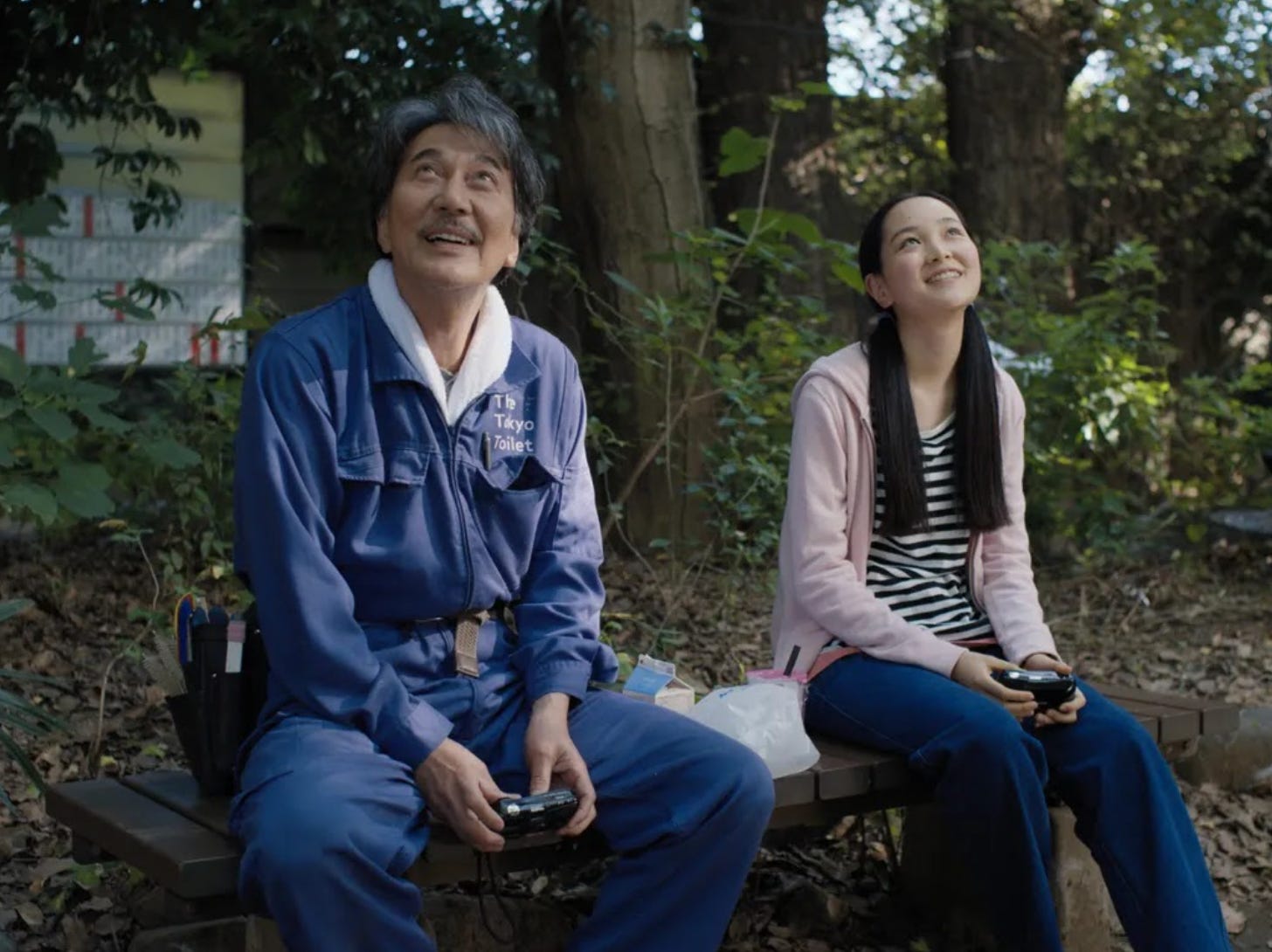Wim Wenders’ wispy drama reportedly began life as a short-form advertisement for Japan’s outdoor latrines. And there’s definitely something saleable about the resulting feature version, its smug benevolence peddled as profound. Wenders and his defenders would surely argue that Perfect Days’ outward gentleness masks a roiling undercurrent of pain, much as it does for Hirayama (Koji Yakusho), a rigorously ritualistic Tokyo toilet cleaner.
Hirayama wakes each morning to the sounds of the same street sweeper. He gets his canned coffee from the same vending machine and drives a more or less similar path to work, wistfully listening to cassette tape needle drops (The Animals’s “The House of the Rising Sun”; Lou Reed’s “Perfect Day”) that Robert Zemeckis might find too on the nose. Hirayama has a quiet lunch in the same park where he’s sure to snap a picture with his late-20th-century film roll camera, or perhaps uproot a small sapling that he’ll take home to his lovingly tended indoor garden. After work he goes to the same restaurant and bathhouse, then comes home to read (Faulkner and Highsmith are on the docket) and sleep. Rinse, wash, repeat.
The first section acclimates us to Hirayama’s regimen. Subsequent acts introduce variations, be they divertingly small (a Tic-tac-toe game played with an unseen opponent) or cosmically large (the niece who shows up on Hirayama’s doorstep, forcing a reckoning with the past). Perfect Days is Jeanne Dielman without the shocks to the system; Wenders’ own Paris, Texas without the emotional-topographical spine of Sam Shepard’s script and Harry Dean Stanton’s sensational lead performance.
Yakusho won Best Actor at Cannes, likely for a climactic scene in which he smiles through his tears Setsuko Hara-style while Nina Simone warbles about feelin’ good. Though he’s more Most Actor, his stillness throughout so self-conscious (set your watch by all those actorly exhales) that Hirayama’s hard-fought approach to life never transcends contrivance. The scenery is still quite lovely. And the public toilets, true to the film’s initial intent, even more so.



The bathroom tour is great and the protagonist is sensitively affable, but. Isn’t there something a little askew when the humble cleaner seems to have the Western aesthetic preferences of someone like Wenders, that his shots of trees could be tasteful wallpaper for an upscale motel chain?